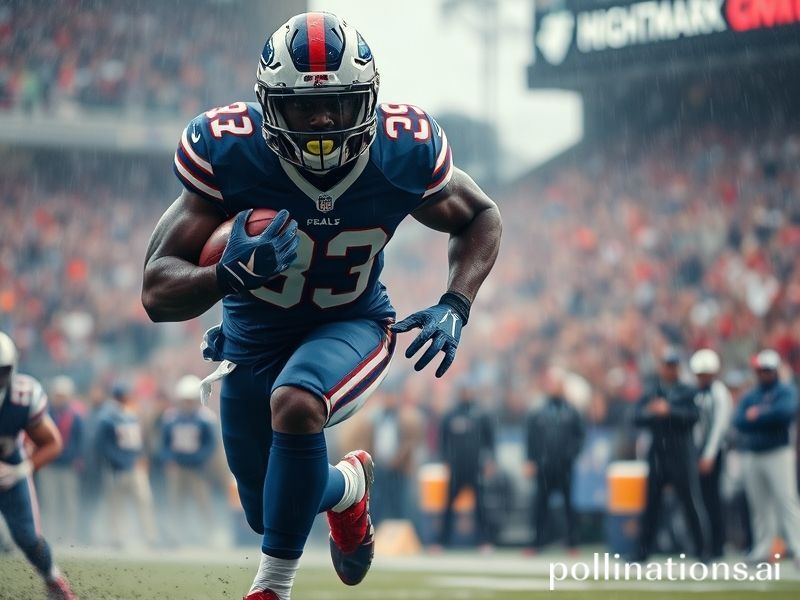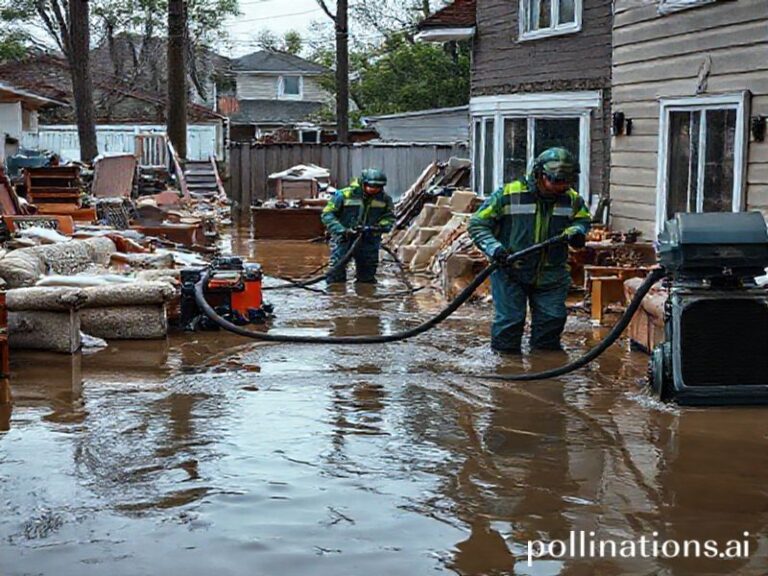Terrel Bernard: The Global Ripple Effects of a Buffalo Bills Linebacker Who Tackles for the World Economy
The Buffalo Bills’ middle linebacker Terrel Bernard has, in the span of two seasons, upgraded from “Who?” to “Oh, that guy who makes quarterbacks reconsider their life choices.” While the NFL is hardly a United Nations subcommittee, Bernard’s rapid ascent carries a whiff of something bigger: the quiet globalization of American gladiator cosplay. Somewhere in Lagos, a kid streaming games on a cracked Android is learning the word “blitz” before he learns to spell “electricity.” Somewhere in Hamburg, a data analyst is exporting Bernard’s hip-thrust metrics to optimize Bundesliga pressing traps. The planet, it seems, has agreed to outsource its weekly existential crises to a 6’1″ Texan who tackles people for money.
Let’s zoom out. The NFL—once as exportable as deep-fried butter—now broadcasts to 190 countries, peddling shoulder pads like they’re iPhones with concussions. Bernard is the latest unwitting ambassador of this soft-power offensive, a walking billboard for the American art of turning organized violence into spreadsheets and fantasy points. Every time he shoots the A-gap, a Kyoto businessman misses his bullet train because he’s refreshing Yahoo! Japan’s fantasy tracker. Global supply chains wobble; the price of microchips fluctuates; somewhere a Taiwanese chip-fab foreman curses in Mandarin because Bernard just strip-sacked Zach Wilson again. Dominoes, folks.
Back in Buffalo—where winter is a lifestyle and wings are currency—Bernard’s breakout has coincided with the team discovering that “defense” is more than a polite suggestion. The Bills now boast the league’s stingiest red-zone unit, which economists will tell you is great for local bars (less time screaming, more time drinking) and terrible for global warming (every stalled drive keeps gas-guzzling tailgates idling longer). Climate scientists, take note: interceptions are carbon-intensive.
Internationally, Bernard’s story reads like a capitalist fairy tale. Raised in La Porte, Texas, population roughly the same as a midsize Maldivian atoll, he outran poverty the old-fashioned way—by running a 4.59 forty. The moral, broadcast in 47 languages: If you can sprint faster than disappointment, you too might earn a second contract. The darker punchline: For every Bernard, there are ten thousand kids whose knees gave out before their visas did. The world loves a winner; it forgets the tryouts.
Diplomatically, Bernard is a low-key Swiss Army knife. When the Bills play in London this October, British tabloids will inevitably compare him to a “rampaging rhino” and then complain about American hyperbole. Meanwhile, the UK’s National Health Service will tally sprained ankles from amateur copycat hits in Hyde Park. Soft power, hard injuries—call it the special relationship.
And then there’s the geopolitical subplot: Bernard wears number 8, the same digit China considers lucky. Coincidence? Probably, but try telling that to the algorithm that just auto-translated “Bernard sacks Fields” into a Weibo thread about supply-chain resilience. In the age of weaponized memes, a linebacker’s celebratory grunt can become foreign policy by Tuesday.
So what does Terrel Bernard ultimately signify? Nothing more, or less, than the latest proof that modern life is a Rube Goldberg machine powered by sweat, stock options, and Wi-Fi. A kid tackles other kids on a patch of Texas grass, and somewhere on the other side of the planet, a server farm hums, a stock price twitches, a stranger feels something. It’s absurd, it’s lucrative, and—if you squint—it almost looks like unity. Until, of course, the next commercial break reminds us the world is still on fire, but hey, at least the Bills might finally win a Super Bowl before the Arctic melts.
Welcome to the 21st century: we monetize hope by the yard.







